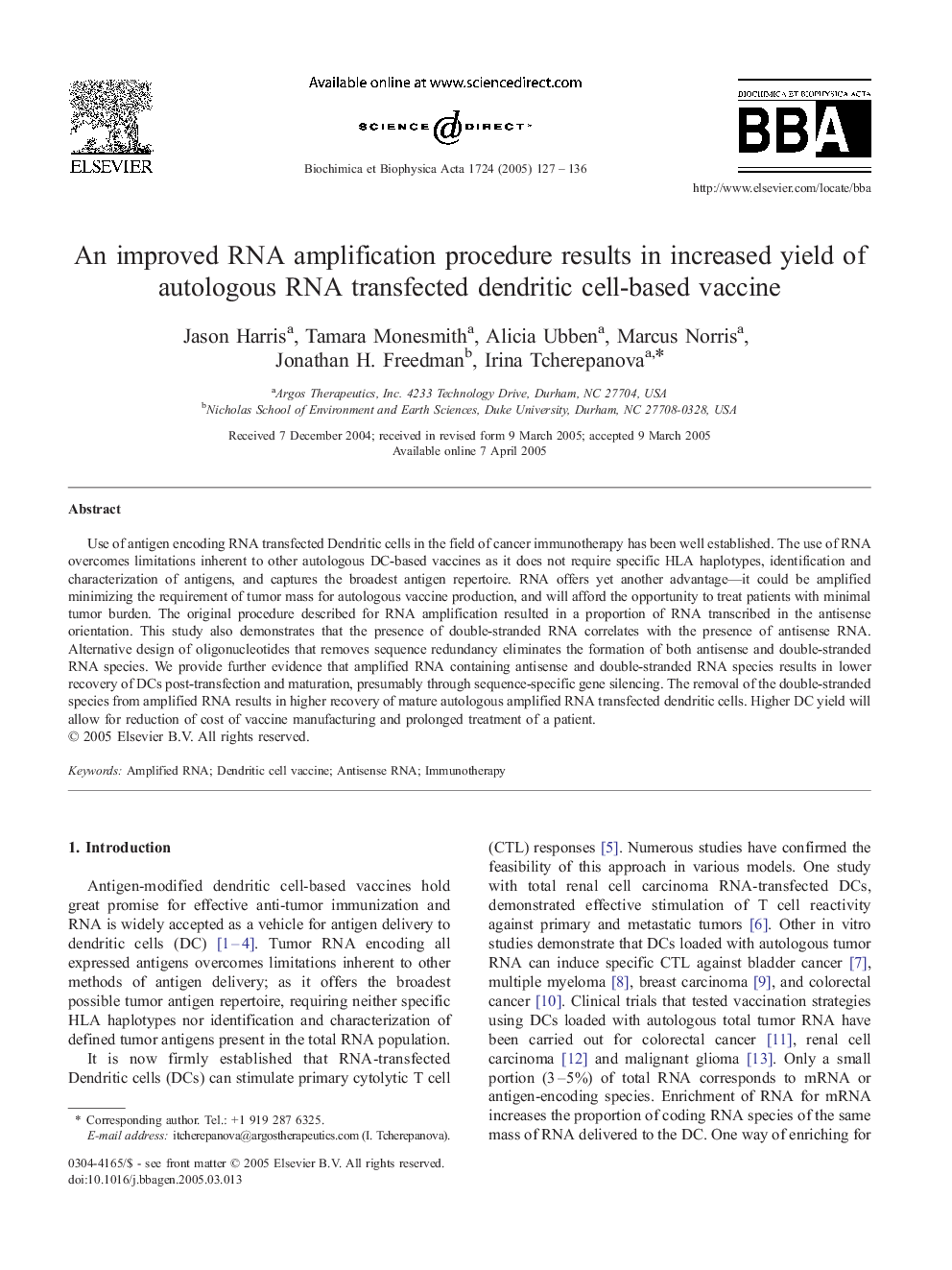| Article ID | Journal | Published Year | Pages | File Type |
|---|---|---|---|---|
| 9886102 | Biochimica et Biophysica Acta (BBA) - General Subjects | 2005 | 10 Pages |
Abstract
Use of antigen encoding RNA transfected Dendritic cells in the field of cancer immunotherapy has been well established. The use of RNA overcomes limitations inherent to other autologous DC-based vaccines as it does not require specific HLA haplotypes, identification and characterization of antigens, and captures the broadest antigen repertoire. RNA offers yet another advantage-it could be amplified minimizing the requirement of tumor mass for autologous vaccine production, and will afford the opportunity to treat patients with minimal tumor burden. The original procedure described for RNA amplification resulted in a proportion of RNA transcribed in the antisense orientation. This study also demonstrates that the presence of double-stranded RNA correlates with the presence of antisense RNA. Alternative design of oligonucleotides that removes sequence redundancy eliminates the formation of both antisense and double-stranded RNA species. We provide further evidence that amplified RNA containing antisense and double-stranded RNA species results in lower recovery of DCs post-transfection and maturation, presumably through sequence-specific gene silencing. The removal of the double-stranded species from amplified RNA results in higher recovery of mature autologous amplified RNA transfected dendritic cells. Higher DC yield will allow for reduction of cost of vaccine manufacturing and prolonged treatment of a patient.
Related Topics
Life Sciences
Biochemistry, Genetics and Molecular Biology
Biochemistry
Authors
Jason Harris, Tamara Monesmith, Alicia Ubben, Marcus Norris, Jonathan H. Freedman, Irina Tcherepanova,
